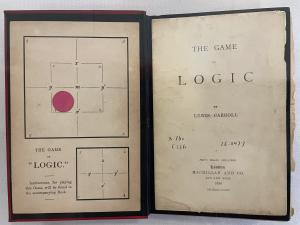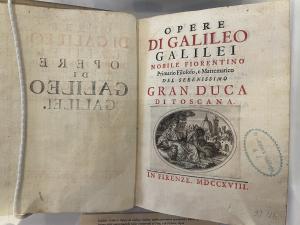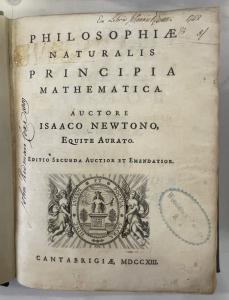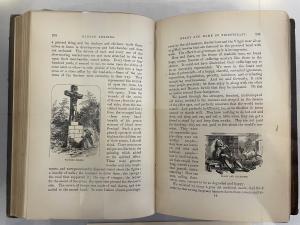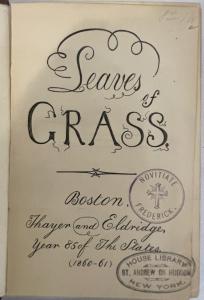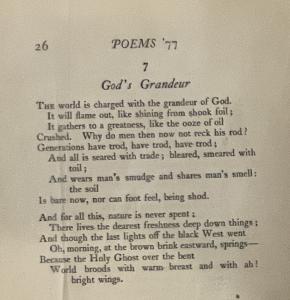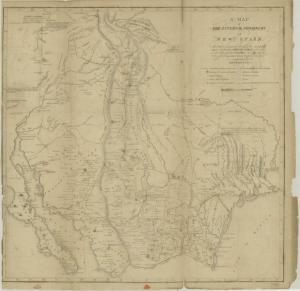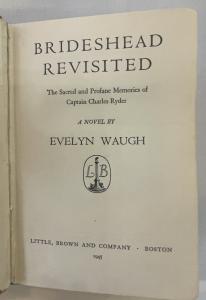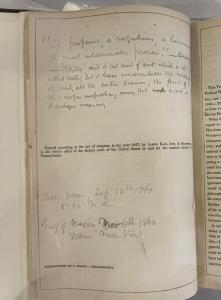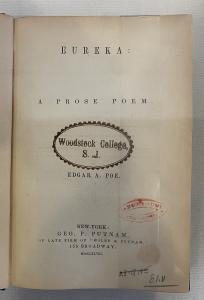The Woodstock Theological Library collection has a long pedigree in Jesuit Institutions serving the needs of scholastics. While it was assembled in 1869 for the express purpose of providing a theological resource for the Woodstock College, it contains far more than just theological tomes. The exhibit on offer is meant to showcase a number of works by famous authors from across the spectrum held within the library collection. The broad collecting interests of past librarians, and the catholic interests of Jesuits, can be seen in this showcase, with first editions of seminal works of poetry, natural science, and literature. While you might expect a Suarez and Aquinas, the collection shows its richness with Galileo’s Works rubbing hardback covers with the Collected Poems of Gerard Manley Hopkins. With such a wealth of material, the collection continues to serve students and scholars of all interests.
The Game of Logic
Lewis Carroll, of Alice’s Adventures in Wonderland fame, wrote this work, part game and part textbook, as an attempt to teach symbolic and propositional logic. With a four year training in philosophy for every Jesuit seminarian, it seems that librarians were looking for interesting ways to teach the curriculum by using Lewis' novel approach.
Works of Galileo Galilei
The first volume in a three volume series of the collected works of Galileo Galilei printed in 1718. Woodstock has a strong collection of early figures in the history of science, with the works of Darwin, Bernoulli, Newton, Bacon, Copernicus, and Boyle among its holdings.
Newton's Principia
Newton, Isaac, and Roger Cotes. Philosophiae naturalis principia mathematica. 1713.
The second edition of the Newton’s most celebrated work, the Principia. It is within this work that Newton expounds on the laws of motion and the law of universal gravitation.
The Innocents Abroad
The Jesuits at Woodstock, were not only interested in works of history, science, and theology, but also had a collection of novels. Here we have a first edition of Mark Twain’s Innocents Abroad, which chronicles Twain's excursion through Europe and the Holy Land aboard a retired Civil War steamship.
Leaves of Grass
Whitman, Walt. Leaves of Grass. Boston: Thayer and Eldridge, 1860.
The collection also contains a great deal of poetry, both their own and the celebrated poets of the day. Displayed is a rare third edition of Walt Whitman’s endlessly rewritten epic poetry collection, Leaves of Grass, a collection which started at 12 poems, and by the final edition, ballooned to over 400. The stamps on the title page indicate how the Woodstock collection grew over time, with additions from the Jesuit novitiates in Frederick, Maryland, and St. Andrew-on-Hudson, in Poughkeepsie, New York.
Gerard Manley Hopkins
Published thirty years after his death, this first edition of the works of Jesuit poet, Gerard Manley Hopkins, includes such celebrated poems as Hurrahing in Harvest and God’s Grandeur (displayed). It would be hard to find a poet more greatly admired by Jesuits than Gerard Manley Hopkins, a Jesuit himself.
Zebulon Pike
Zebulon Pike, like Lewis and Clark, was one of the great explorers of the early republic, mapping the Mississippi and Arkansas rivers. The Woodstock collection holds a wide range of Western exploration literature both in Jesuit Missions and colonial expansion.
Brideshead Revisited
Another work which interested the librarians at Woodstock was the great 20th century novel, Brideshead Revisited, by the British Catholic convert, Evelyn Waugh, which follows the relationship of Charle’s Ryder and the Flytes, an old aristocratic Catholic family. Woodstock's copy is a first edition.
Melville's Wordsworth
One of the great treasures within Woodstock's collection is Herman Melville's copy of the Complete Poetical Works of Williams Wordsworth, with his own annotations. The annotations are not extensive, however, on the title page he records where he read it, sailing onboard the Meteor and the North Star while in the Gulf of Mexico. Further information can be found in an article by Thomas Heffernan.
Poe's Eureka
Though the theological material within the Woodstock collection was largely orthodox, they were not above collecting their rivals. Eureka, one of the final works of Edgar Allen Poe, is a long cosmological poem detailing his thoughts on the relationship of material and spiritual reality that was decidedly strange. The work was equally derided and celebrated when it was published, and is quite rare, with only 500 copies in existence.
Curated by Adrian Vaagenes, Woodstock Librarian

